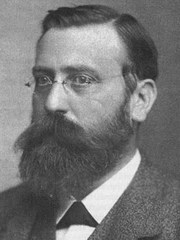This article is part of the series "A Moment in History" where we honor those who have contributed to the growth of medical knowledge in the areas of anatomy, medicine, surgery, and medical research.

Wilhelm Kiesselbach
Wilhelm Kiesselbach (1839 – 1902) German otolaryngologist born in the city of Hanau. Started his medical studies in 1859 in Göttingen. Marburg, and Tübingen. Because of an accident that affected one of his hands and legs, his doctorate was delayed until 1875.
He specialized in otolaryngology in Vienna, although he also studied and specialized in ophthalmology. He had a number of positions such as assistant professor at the Medical Polyclinic in Erlangen, assistant professor for ophthalmological examinations at the Surgical Clinic in Erlangen, and senior physician for ophthalmology.
He died of an infection he contracted while working with patients at the clinic.
His name is eponymically tied to the locus Kiesselbachii, also known as Kiesselbach’s plexus, an area of the anteroinferior nasal septum known for propensity for epistaxis or nasal bleeding. In fact, close to 90% of nose bleeds happen in this area. in this region, terminal branches of the anterior ethmoid artery, greater palatine artery, sphenopalatine artery and superior labial artery anastomose forming a plexus.